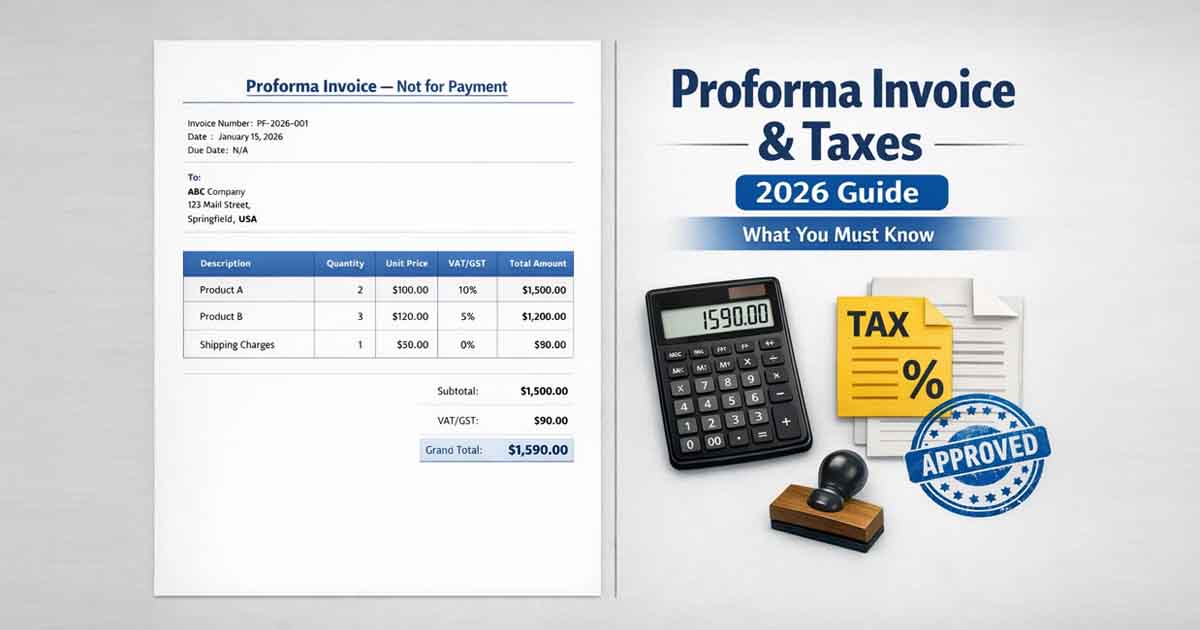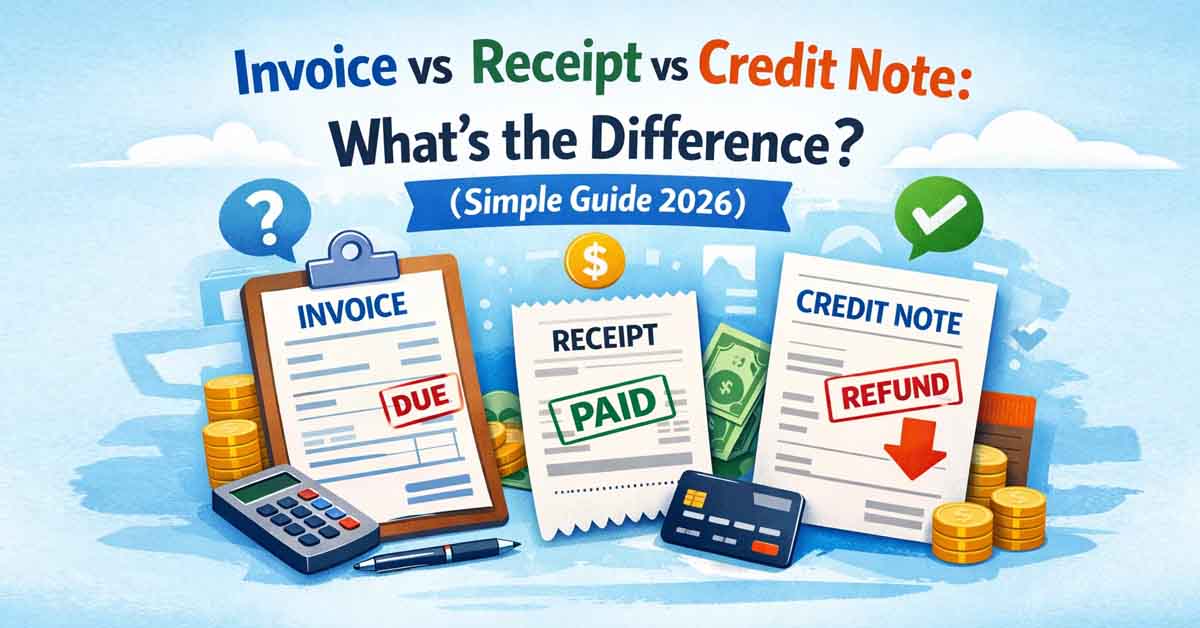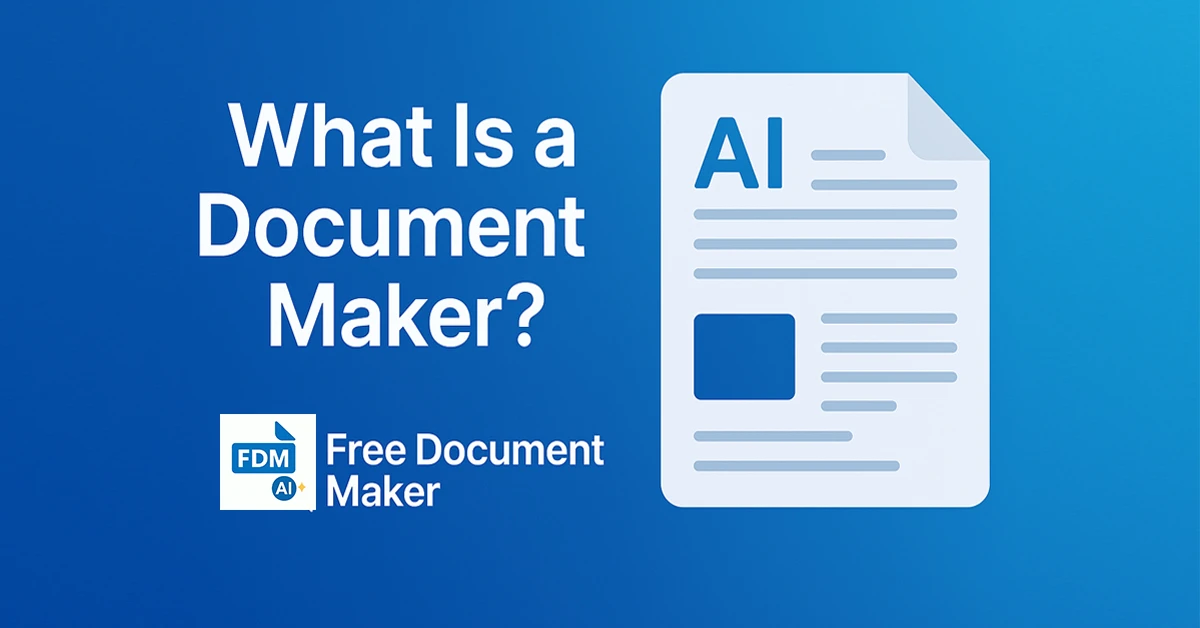If you run a business, work as a freelancer, or handle international clients, you’ve likely encountered the term proforma invoice.
But many small business owners still ask:
Is a proforma invoice legally binding?
Does it affect tax reporting?
Should I record it as income?
Understanding how proforma invoices work can help you avoid accounting mistakes and stay fully tax-compliant.
In this guide, we explain everything clearly — from tax implications to proper usage in 2026.
What Is a Proforma Invoice?
A proforma invoice is a preliminary document sent before goods or services are delivered. It outlines:
Products or services
Quantities
Unit prices
Estimated taxes
Shipping costs
Total amount
However, it is not a legally binding invoice and does not request payment.
Think of it as a formal quotation or draft invoice.
It allows both buyer and seller to confirm transaction details before final billing.
Common Uses of Proforma Invoices
Proforma invoices are commonly used in:
International shipping and customs clearance
Export and import businesses
B2B service quotations
Pre-contract project approvals
Cross-border trade documentation
For international trade, customs authorities may require a proforma invoice to estimate duties and taxes before shipment.
Do Proforma Invoices Affect Taxes?
Short answer: No — not directly.
A proforma invoice:
Is not recorded as revenue
Is not entered as accounts receivable
Is not reported to tax authorities
Does not trigger VAT, GST, or sales tax liability
Tax liability begins only when:
The final invoice is issued
Goods are delivered
Services are completed
Payment is requested
However, including applicable tax rates (VAT, GST, Sales Tax) on a proforma invoice is recommended. This helps clients understand total projected costs and prevents disputes later.
When Should You Use a Proforma Invoice?
Use a proforma invoice when you:
Want to provide a structured quotation
Need documentation for customs clearance
Are awaiting customer approval before delivery
Want to confirm pricing before production
Need to outline tax estimates clearly
Do not use a proforma invoice as a substitute for a real invoice.
Always issue a standard invoice once the transaction becomes official.
What Should a Proforma Invoice Include?
To remain professional and audit-safe, your proforma invoice should contain:
Business name and contact information
Client details
Unique document reference number
Issue date
Itemized list of goods or services
Quantities and unit prices
Applicable taxes (VAT, GST, etc.)
Estimated shipping or logistics charges
Valid-until or expiry date
Clear label: “Proforma Invoice – Not for Payment”
This labeling prevents accounting confusion and ensures compliance during audits.
Proforma Invoice vs Standard Invoice
Proforma Invoice | Standard Invoice |
|---|---|
Estimate or quotation | Legally binding bill |
Not recorded as revenue | Recorded as income |
Not used for tax reporting | Used for tax reporting |
No payment requested | Requests payment |
Sent before delivery | Sent after delivery |
Understanding this distinction is critical for accurate bookkeeping.
How to Create a Proforma Invoice Online (Free)
You can generate a professional proforma invoice instantly using:
👉 https://www.freedocumentmaker.com/proforma-invoice-generator
The tool allows you to:
Add your logo and branding
Include VAT, GST, or sales tax
Add discounts and shipping
Download high-quality PDF
Create documents without signup
Once the client approves the quotation, you can convert it into a final invoice using:
👉 https://www.freedocumentmaker.com/invoice-generator
This keeps your workflow simple and tax-compliant.
Tax Compliance Tips for Small Businesses
To avoid tax mistakes:
Never record proforma invoices as income
Issue final invoice only after confirmation
Keep numbering consistent
Store both documents for audit reference
Ensure final invoice reflects agreed tax amounts
Proper documentation reduces risk during audits and builds client trust.
Final Thoughts
A proforma invoice is a powerful business tool when used correctly.
It helps you:
Clarify costs
Confirm expectations
Support international trade
Stay organized before billing
Just remember: it is not a tax document and does not replace a standard invoice.
Use it for smart quoting — then issue a proper invoice for accounting and reporting purposes.




